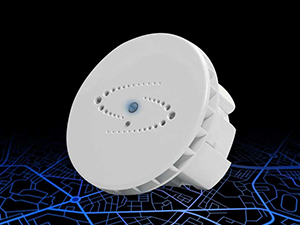Halo Smart Sensors vs. Other Security Technologies for your Campus
Posted By Remote Techs On 17-May-2023

As a technology company that specializes in cutting-edge security solutions, Remote Techs is proud to offer Halo Smart Sensors, a powerful tool that can enhance the safety and security of your campus. In this article, we will compare Halo Smart Sensors with other security technologies to help you understand why Halo Sensors are the best choice for your campus.
Halo Smart Sensors vs. Traditional Security Systems
Traditional security systems, such as surveillance cameras and access control systems have been used for many years to protect campuses from security threats. However, these systems have limitations that Halo Smart Sensors can overcome. Surveillance cameras can capture footage of security incidents, but they are passive systems that do not provide real-time alerts. Access control systems can prevent unauthorized individuals from entering certain areas, but they cannot detect weapons or other security threats. Halo Smart Sensors, on the other hand, can detect weapons, vaping, air quality, COVID-19, and motion, providing real-time alerts and allowing campus officials to take immediate action.
Halo Smart Sensors vs. Metal Detectors
Metal detectors are commonly used in schools to detect weapons. While metal detectors can be effective, they are limited in their ability to detect other security threats. For example, they cannot detect vaping, COVID-19, or poor air quality. Additionally, metal detectors require individuals to go through a screening process, which can be time-consuming and disruptive. Halo Smart Sensors, on the other hand, are non-invasive and can detect multiple security threats simultaneously, providing a more comprehensive approach to campus security.
Halo Smart Sensors vs. Thermal Imaging Cameras
Thermal imaging cameras have become more prevalent in recent years, particularly during the COVID-19 pandemic, as they can detect elevated body temperatures, which can be a sign of a fever and potentially indicate a COVID-19 infection. While thermal imaging cameras can be effective in detecting COVID-19, they are limited in their ability to detect other security threats, such as weapons, vaping, and motion. Additionally, thermal imaging cameras can be costly and require a dedicated operator. Halo Smart Sensors, on the other hand, can detect multiple security threats and do not require a dedicated operator, making them a more cost-effective solution for campus security.
Halo Smart Sensors vs. GPS Tracking Devices
GPS tracking devices are commonly used to track the location of individuals, particularly in large outdoor areas, such as campuses. While GPS tracking devices can be useful for locating individuals, they do not provide real-time alerts for potential security threats. Additionally, GPS tracking devices can be costly and require a significant amount of infrastructure. Halo Smart Sensors, on the other hand, can detect multiple security threats in real-time and do not require a significant infrastructure investment.
In conclusion, Halo Smart Sensors are the best choice for campus security. They can detect multiple security threats in real-time, providing campus officials with immediate alerts and allowing them to take swift action to address potential security threats. Additionally, Halo Smart Sensors are non-invasive, cost-effective, and require minimal infrastructure, making them a more practical solution for campus security than traditional security systems, metal detectors, thermal imaging cameras, and GPS tracking devices. If you are interested in learning more about Halo Smart Sensors and how they can benefit your campus, please visit our website at Remote Techs Halo Sensors
Contact Remote Techs today to learn more about how Halo Smart Sensors can enhance the safety and security of your campus and protect your students, faculty, and staff from potential security threats.Halo Smart Sensors vs. Other Security Technologies for your Campus